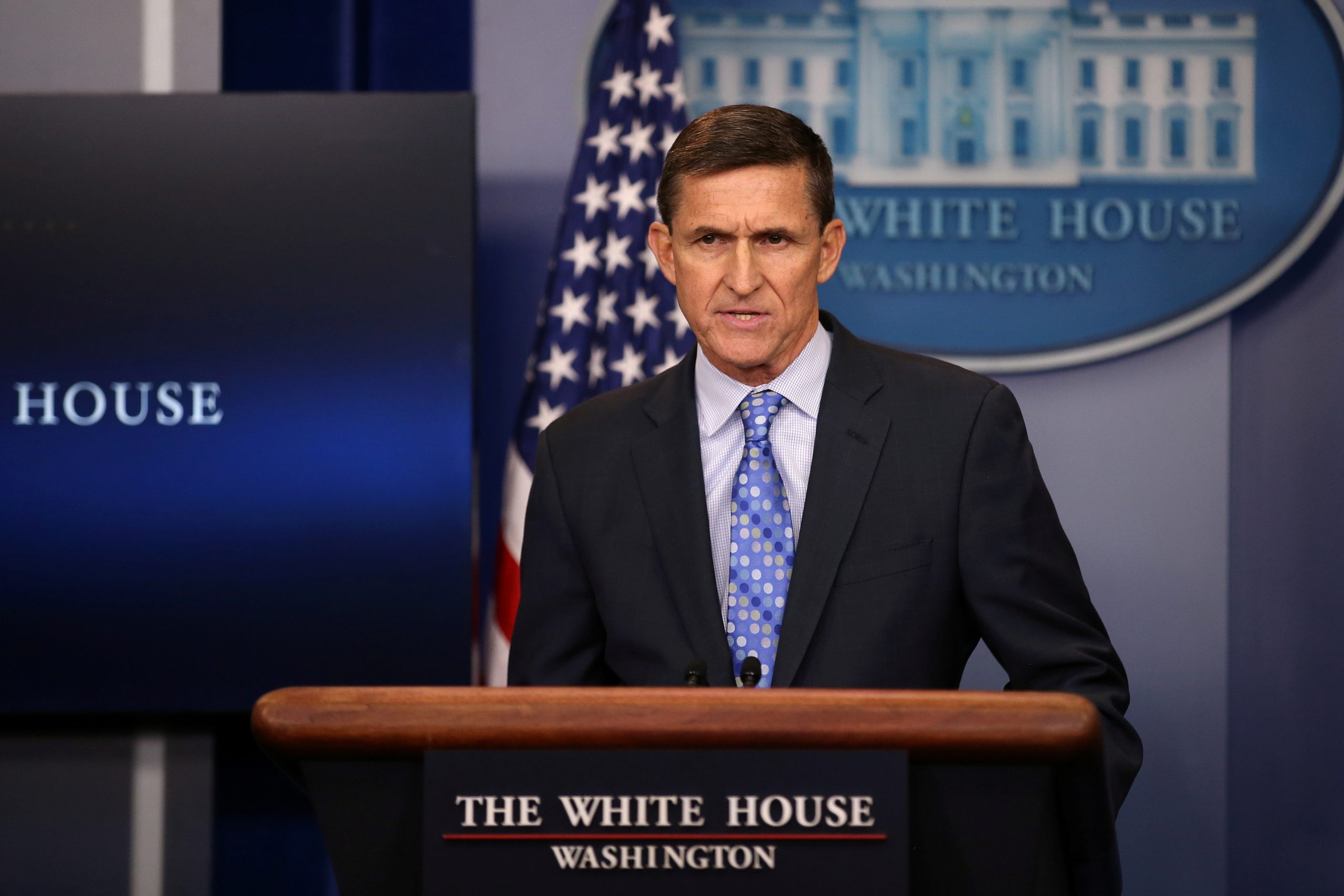The lead attorney for U.S. President Donald Trump’s former national security adviser on Tuesday told a federal judge that she has discussed the ongoing criminal case with the president and asked him not to pardon Michael Flynn, an extraordinary admission that raises questions about political interference.
At the same hearing, U.S. Justice Department lawyers denied any corruption or political motives in efforts to get the federal criminal case against Flynn dropped.
In May, Attorney General William Barr stunned many in the legal community by ordering prosecutors to have the case dropped, a decision that came after Trump repeatedly complained that Flynn was being treated unfairly.
Critics have accused Barr of giving special treatment to Trump allies such as Flynn and Trump’s longtime friend and supporter Roger Stone.
Flynn’s defense counsel Sidney Powell tried to invoke executive privilege in an initial refusal to discuss details of her conversation with Trump, angering U.S. Judge Emmet Sullivan.
“Well, you don’t work for the government,” Sullivan told her.
Powell, in a tense exchange with the judge, said she recently met with Trump after the government moved to dismiss the case. She added that Trump campaign attorney Jenna Ellis was also present.
“I spoke with Jenna Ellis and I spoke with the president himself to provide a brief status of the litigation within the last couple weeks,” Powell said.
“Did you make any requests of the president?” Sullivan asked.
“No sir, other than he not issue a pardon,” she replied.
Powell downplayed a letter she sent to Barr and Deputy Attorney General Jeffrey Rosen in June of 2019, in which she complained that the FBI had tried to entrap her client and asked the department to appoint new government lawyers to preside over the case.
When Sullivan asked whether she felt her letter to Barr was ethical, Powell replied: “Perfectly.”
Powell’s discussion of the case with Trump, along with her letter to senior Justice Department officials, are likely to further stoke debate over whether the Trump administration is improperly seeking to dismiss the case.
The letter to Barr “raises questions about motive” for the department to remove career prosecutors from the case, the judge said. He suggested the bar association might take issue with her tactics.
He asked the government to schedule a follow-up meeting to discuss how Barr and Rosen responded.
TWO GUILTY PLEAS
Kenneth Kohl, an assistant U.S. attorney for the District of Columbia, said he did not know details of Barr’s response but denied there was any improper political interference in the case.
“I’ve never seen it in my entire career in our office and it didn’t happen here,” Kohl said.
He attacked former top FBI officials, including former Deputy Director Andrew McCabe and former agent Peter Strzok, saying they could not be reliable witnesses for the government if it had proceeded with its prosecution of Flynn.
Powell, meanwhile, told Sullivan she thought he was biased against Flynn and intended to file a motion to ask him to recuse himself.
Sullivan did not issue a ruling during the more than four-hour hearing and did not indicate when he will make a decision.
Flynn, a retired Army lieutenant general, was charged under former Special Counsel Robert Mueller’s investigation that detailed Russian interference in the 2016 U.S. election.
Flynn pleaded guilty twice to lying to the FBI about his conversations before Trump took office with Sergei Kislyak, who was then Russia’s ambassador to the United States, concerning U.S. sanctions imposed on Russia under President Barack Obama.
He was due to be sentenced in December 2018.
Sullivan delayed the sentencing until Flynn could finish cooperating with the government in a separate criminal case. But Flynn last year switched lawyers and his new legal team claimed the FBI had set him up.
Barr’s unusual move ordering the case dropped despite the guilty pleas led Sullivan to tap retired judge John Gleeson to argue against the Justice Department’s legal position.
Gleeson on Tuesday urged Sullivan not to drop the case, arguing that a guilty plea cannot be taken lightly.
“People can’t plead guilty and then show up for sentencing, as this defendant did on December 18, 2018 and see how the wind is blowing.”
(Reporting by Sarah N. Lynch; Additional writing by Susan Heavey; Editing by Bill Berkrot)

























 Continue with Google
Continue with Google